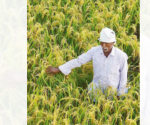‘Mumbai has done a third of hand transplants in country’ – The Times of India

Mumbai: India has one of the lowest deceased organ donation rates in the world, with less than 1 per million population (PMP) compared with Spain’s 52.6 donors PMP. However, it leads in one transplant: Hand transplants.
Plastic surgeons in India began performing hand transplants in 2015—17 years after the world’s first successful surgery in France in 1998—but the number of such transplants in India has now surpassed the rest of the world. According to an editorial published in the ‘Indian Journal of Plastic Surgery’ in Nov 2024, India conducted 73 of the 179 hand transplants worldwide by Sept 2024. The US is second with 55, and the UK is third with 17.
Amrita Hospital in Kochi conducted the first hand transplant and has managed to conduct the maximum number (30) so far. However, the country’s ‘late bloomer’ —Mumbai—where the first hand transplant was conducted in 2020, has managed second place with 24 in less than five years. “India and Mumbai have surged ahead in hand transplants,” said Dr Nilesh Satbhai, who conducted the city’s first hand transplant on train accident victim Monika More.
Dr Vinta Puri, head of plastic surgery at civic-run KEM Hospital, who performed the challenging shoulder-level hand transplant on Sunday, said, “Hand transplants take long, are intensive, and require team effort.” Her latest patient, 19-year-old Sujal Tiwari from Bhandup, lost his right arm in a scuffle two years ago. On Tuesday, he ate a full diet, and the “transplanted arm was wonderfully warm,” indicating good blood flow and a successful transplant. “He is stable, but we have to closely watch him for the next five days,” said Dr Puri.
The reasons for India surging ahead, according to Dr Puri and Dr Satbhai, include surgical expertise, availability of philanthropic funding, and good rehabilitation facilities. The ‘Indian Journal of Plastic Surgery’ article mentioned another reason: The lower cost of immunosuppression drugs that transplant patients require throughout their lives. The article said, “The overall monthly cost is much lower in India, approximately Rs 15,000 per month, a relatively affordable out-of-pocket expense for the recipient. This makes long-term sustainability a reality….”
















